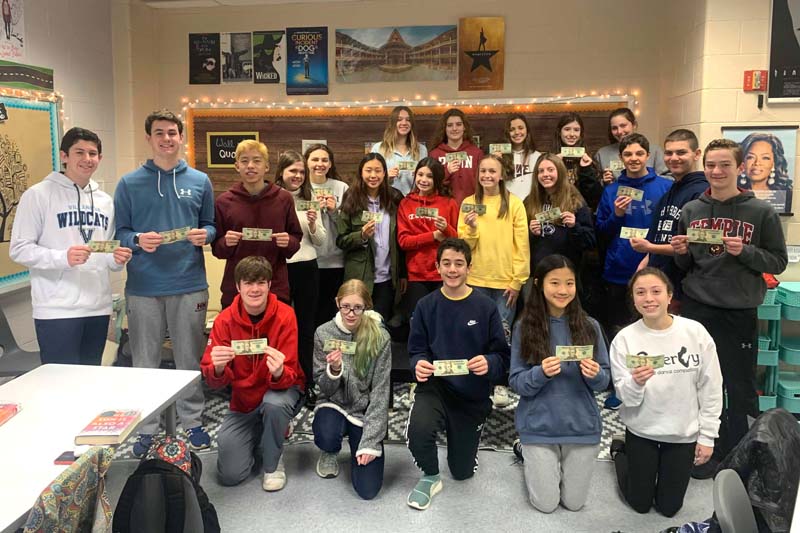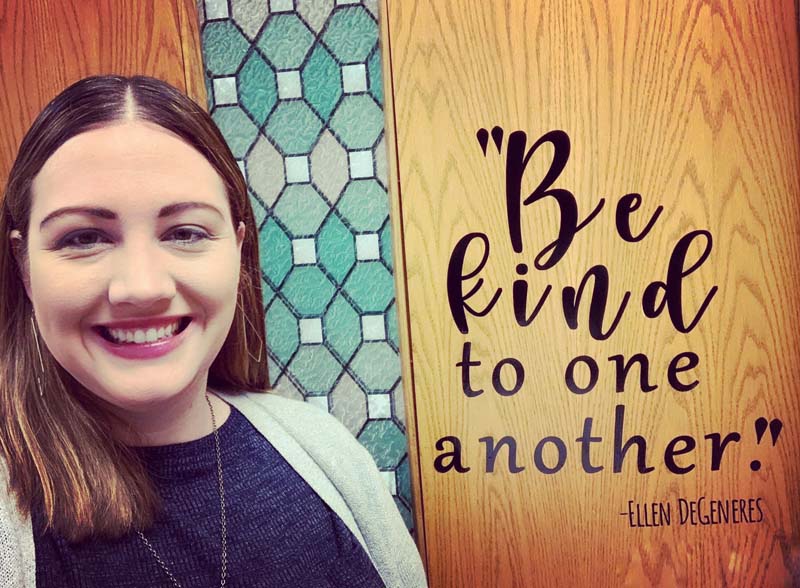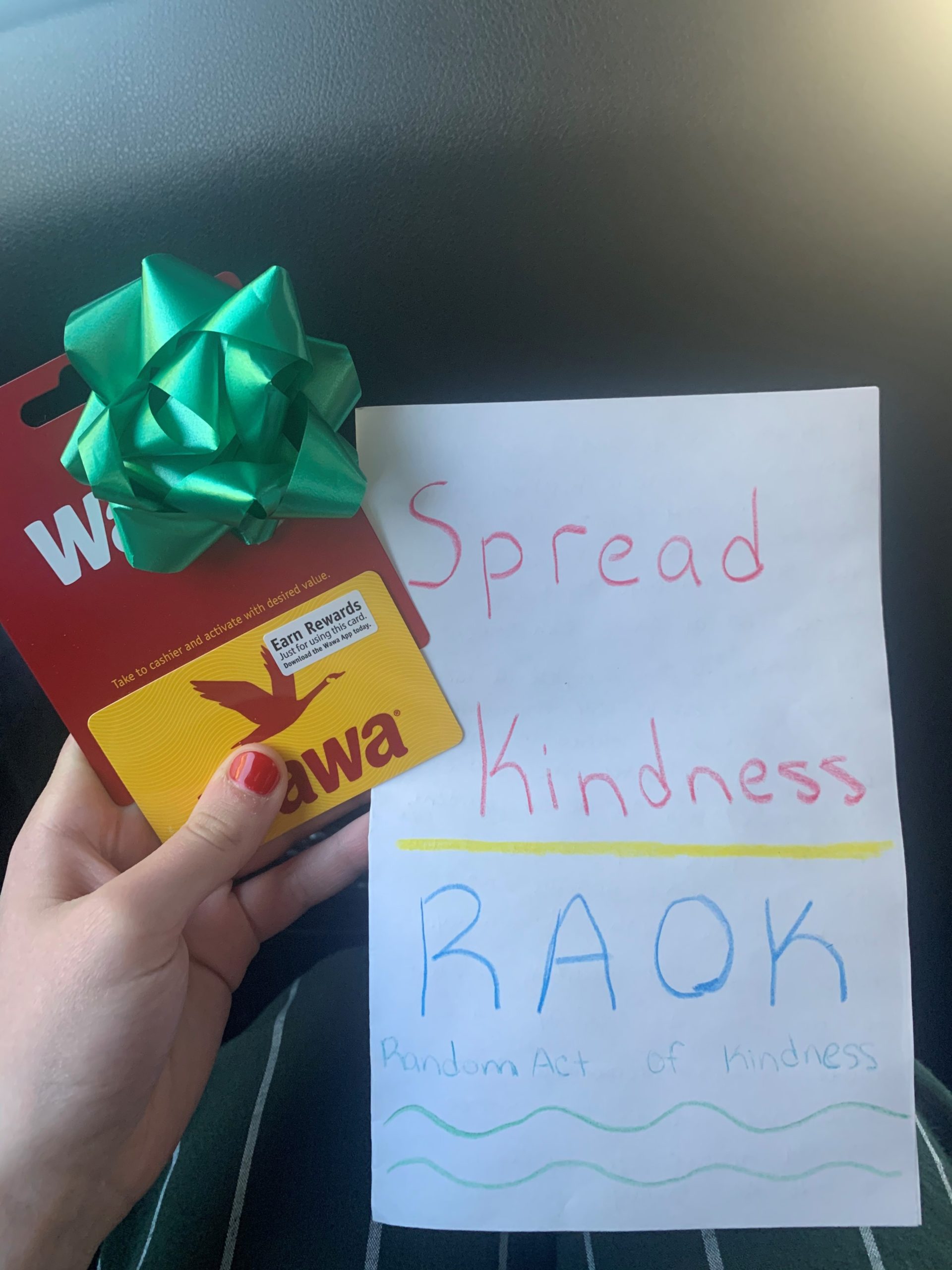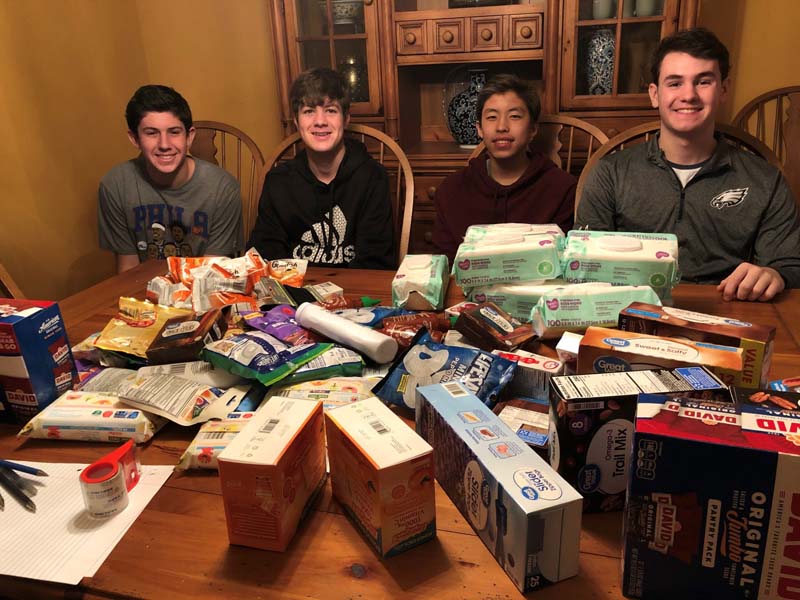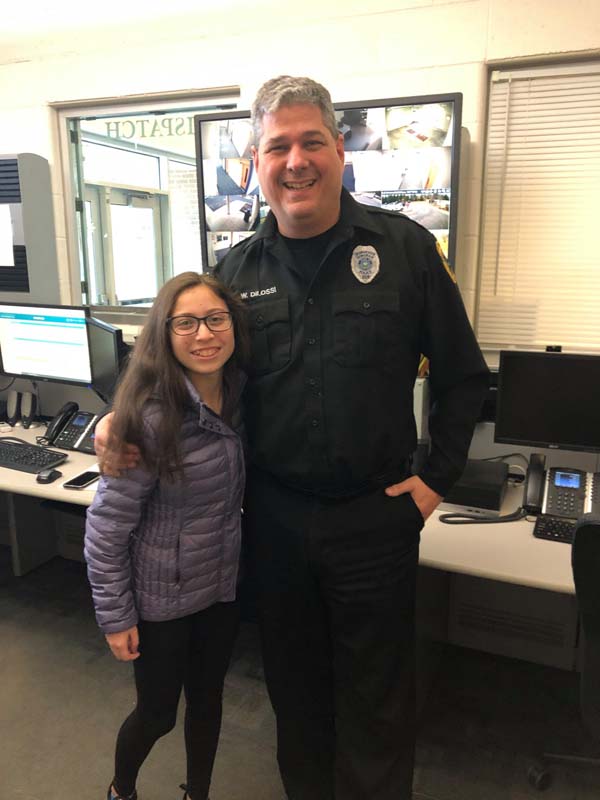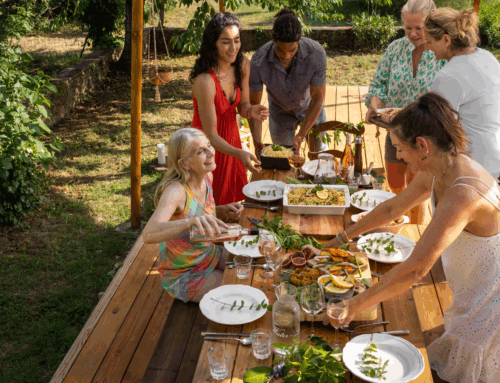The concept of “Pay It Forward” isn’t new. The kindness we show others can start a ripple effect beyond what we see … it can even extend beyond our own lifetime. But Kristina Ulmer, an English Teacher at Hatboro-Horsham High School has taken this concept and used it as a unique challenge for her freshman classes.
The Story of the $20 Challenge
In October 2014, Kristina’s younger sister, Katie Amodei, died in a car accident. After her sister passed away, Kristina found some money in Katie’s wallet. Katie had spent so much of her young life dedicated to aiding those in need. Therefore, Kristina knew the money needed to help others, but donating to a random charity didn’t feel right.
Kristina held onto the money and slowly contributed to it. Finally, by Christmas of 2018, she had enough to do something that would be meaningful. The day before winter break, Kristina told her students that she had a special project for them. She told them about her sister and the money, and then handed each student a $20 bill. She explained that there one stipulation: They had to use it to help someone in need or to do a random act of kindness.
While the students could have easily spent the money over the school break, they were passionate about meeting Mrs. Ulmer’s challenge. Some donated to charities that were important to them, some gave back to others in the community, and some just did things to bring a smile to a stranger’s face.
The Lesson Continues
Everyone who heard about Mrs. Ulmer’s class project loved it. (We wrote about it here!) And it even made national news – including a nationally syndicated radio show, an NPR podcast, an article in Woman’s World Magazine, and a Philly Inquirer article that was republished in several newspapers across the country.
A few weeks into the Spring 2018 semester, Kristina Ulmer received an email from someone telling her that they heard about what her class had done. Wanting to remain anonymous, the person wished to pay for Kristina’s new class of students to have the same experience. A few days later, Kristina received a $520 check to keep the project going. Since then, donations have continued to come in, and a third class completed the project in Fall 2019.
Watch this video to hear the students talk about the project in their own words:
BH: After the huge surprise to your students the first time you did it, are your new students now expecting it?
KU: I don’t know if my students expect it so much, but they weren’t surprised when I gave out the twenties this year. However, they still had the same excitement about it. Like “Yes! We get to do it too!” Their teachers in middle school showed them my first video and the news stories, so they knew all about it.
BH: How has the project changed? Do you find that the way the money is used has changed at all, or is there always a wide variety?
KU: Each class has definitely tried to take it a step further I think. The second class, last spring, spent more of their time making or buying and donating things (hats for newborns in the NICU, blankets for shelter dogs, activity boxes for kids in hospitals, meals for the elderly, food for a food bank, sanitary napkins for a women’s shelter, etc.) and figuring out how to stretch their $20. They did a lot less just donating their money than the first group did (where about half donated their money). But most of them didn’t actually get to see how their kindness affected the person.

Eric Bromberg, one of Kristina Ulmer’s students got to experience the challenge in two classes in the 2018-2019 academic year. (Photo Credit: Hatboro-Horsham High Senior, Hailey Phillips)
This third group did more that allowed them to actually see the repercussions of their kindness. They made soup and actually served it at a shelter, spending time talking to those they were serving; they made a care package and sent it to a soldier they know who is stationed in Afghanistan after asking her what she and her fellow soldiers needed; they decorated a struggling neighbor’s home for Christmas and were able to see the happiness it brought; they made bagged lunches and passed them out to the homeless in Philly; they brought pizza to a teen rehab center and hung with the patients there. It was mostly things where they got to see the smile they helped create or could hear a direct thank you.
My favorite was a student who stood outside the doors of the NICU on Christmas Eve, waiting for a tired, new father to come out. And when one finally did, she presented him with a $20 Wawa gift card.
I don’t believe they need to hear the thank you or see the smile to learn the lesson. In fact, I want them to do kind acts not because they want to receive the thank you but despite the fact that they might not receive one. However, it was nice this semester to watch them experience how their kindness impacted others.
BH: Do you plan to continue the project indefinitely in this same way? Or do you have different ideas for ways you’d like to encourage your students to pay it forward?
KU: I don’t know if this will go on indefinitely. I’ve had enough people donate that I can do this with a few more classes. When the money runs out, I will probably try to get more donations to keep it going as long as I can. Each time I’ve done this, I’ve talked to my students about other ways they can spread kindness without money. We talk about holding doors open for others, saying please and thank you, smiling at those you pass, sending a text to someone to tell them you’re thinking about them, etc. And many students state that they can do this with less money. For example, they can buy a coffee for a friend, which would only cost a couple dollars. Any little thing to brighten someone’s day.
And so, the message of spreading kindness continues! In fact, one of the parents of a student in last fall’s class emailed Mrs. Ulmer to tell her that they’re keeping the $20 challenge tradition going. Last year, the student and her uncle used the money to buy donuts and pass them out on a random street corner. It was her uncle’s favorite part of their visit, so they did the same thing again this year completely unprompted.
It doesn’t take much to show the world a little love and make someone smile.
What would you do with $20?
We Are Supported By:



